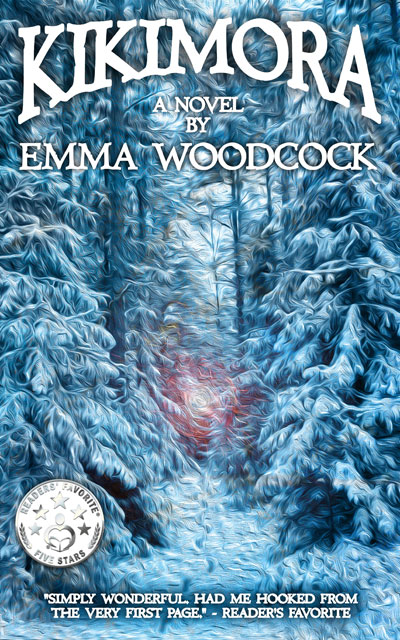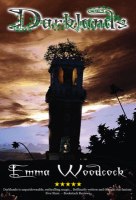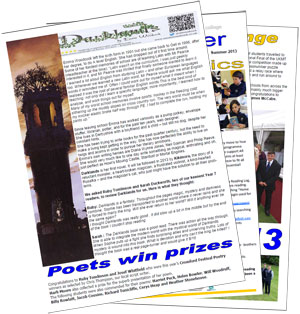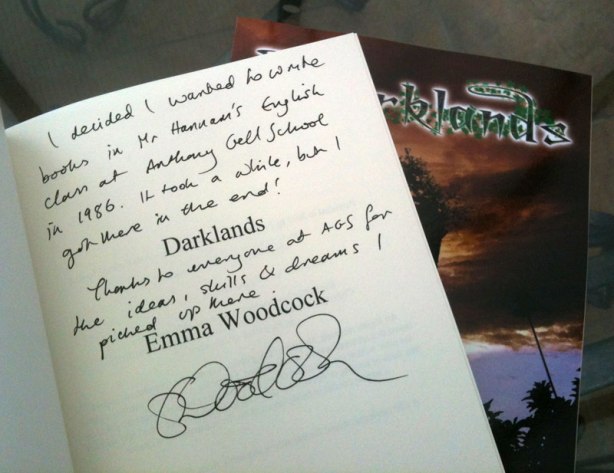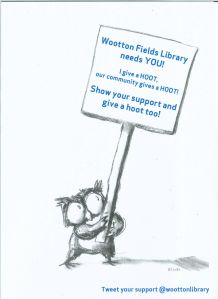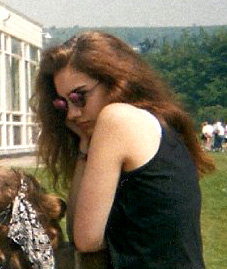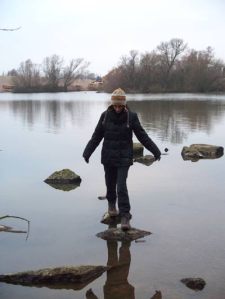 I first published Darklands as an eBook at the end of August 2011 (followed by a paperback in April 2012). I had always intended to do a round up of my first year in self publishing – the highs, the lows, the financial realities – but somehow, never found the time. So this is more like my first 14 months in publishing. I hope it might be useful or of interest to other writers looking at self publishing and wondering what to expect.
I first published Darklands as an eBook at the end of August 2011 (followed by a paperback in April 2012). I had always intended to do a round up of my first year in self publishing – the highs, the lows, the financial realities – but somehow, never found the time. So this is more like my first 14 months in publishing. I hope it might be useful or of interest to other writers looking at self publishing and wondering what to expect.
On the whole, I’d say I am pretty happy with how things have gone. But I would also say that I have severely readjusted my expectations from the beginning of the year. Reader feedback has been excellent, but sales have nevertheless been … s-l-o-w.
I have been extremely conservative about outlaying any money for services – possibly even too conservative (you have to speculate to accumulate, right?) This is mostly due to my paranonia about being fleeced by cynical snake oil merchants looking to milk the hopeful-writer cash cow…
I had no costs associated with the actual book production. My sister proof-read; my partner did the cover design; I did all the formatting and layout. Nor were there any production costs for publishing the paperback, or for the ISBN (though there are costs now that I want to edit the paperback. More on that below).
Even so, income has not exceeded outgoings, and I find I am out of pocket at the end of this first year.
The highs
Darklands has received seven reviews on Amazon.co.uk, all five star; four ratings on Goodreads, average 4.5 stars. I have visited a secondary school to talk to the students about writing and self publishing. I have done three radio interviews on different local stations. I’ve done four interviews for book sites, and have a guest post coming up in December for the Speculative Salon. And last weekend I encountered my first fan! An unknown (and it must be admitted, rather drunk) bloke accosted me in the pub to tell me how much he had enjoyed Darklands (which he had read to his daughters). Awesome.
The lows, the reality checks and the nitty gritty
I’ve sent out review requests to over 20 book bloggers (all hand picked as likely candidates, and sent personal messages). Seven of those I contacted back in 2011 replied sounding positive, but only two actually reviewed Darklands (Thanks, Bookstack and Hey Tara!) Of the 13 I’ve contacted this year NONE have responded except by automated reply. I wonder at this difference. Are book bloggers just becoming so saturated by review requests that they don’t have the time/inclination to respond? Are my emails getting caught in spam folders (and is it possible my surname helps with that?!)?
I’ve sent out info packs to four local libraries. None have responded to me; and I can guess from checking the County library catalogue that none have ordered Darklands. I’ve written to my old school. As yet I’ve had no written response, but I did bump into the librarian a couple of weeks back, who expressed great interest, and promised to get back to me. I’ve written to my two local branchs of Waterstones, but again had no response. Maybe I’d have better luck in person – or at least, someone who’s a better salesperson than me might…
Over this first year I have sold a little over one hundred books – about two thirds eBooks to one third paperbacks (I don’t have a definite figure, because paperbacks I’ve sold through Amazon or other wholesalers don’t appear in any figures I have access to … until they do – which happens twice a year, and hasn’t yet! That said, I can hazard a guess at how many paperbacks Amazon has sold just from keeping an eye on the sales rank). My royalties vary between £1 and £3.
I’ve so far paid £470 in book related expenses. I’ve received back £270. I am currently owed £40, $17 and €4 by retailers (I’m not sure I will ever see the dollars or euros, due to the threshholds it is necessary to accrue before Amazon will make payments).
So what costs did I encounter, given that I’ve been so parsimonious?
In initial publishing excitement I spent £20 on Facebook ads the day the eBook came out (A complete waste of money. It didn’t even have any reviews yet. No one bought it except people I know). I bought 40 paperbacks, most of which I’ve sold (six still pending payment). I paid £88 to my publisher, Feedaread, for the distribution package which makes Darklands available to Amazon. I’ve also just paid them £39 for the privilege of producing a new cover (I had been intending to tweak a couple of things inside the book as well – mainly regarding the Kikimora preview at the end. But that would have set me back an additional £39! Eagle-eyed readers will note that the price was £29 when I discussed it a few weeks back. It’s gone up. Sigh) I’ve paid £25 to book a stall at a Christmas market in Derby. I’ve had smaller incidental costs, such as display stands and stamps (I’m not even counting the petrol I use driving to radio interviews, school visits, delivering books to the bookshop, etc). It all adds up.
One hundred books in a year doesn’t sound much, does it? I had certainly expected and hoped to move more than that when I set out on this endeavour. But I underestimated many things about this process – not least how vastly over-saturated the young adult fiction market is, and therefore how competitive; how precise your marketing has to be (clue: mine hasn’t been so far).
One area I’m feeling increasingly uncertain about is whether Darklands really is young adult, or ‘middle grade’ (whatever the hell that is). I originally envisaged it as for 12-14 year olds, but several parents have told me their ten year olds read and enjoyed it. I just read this post on the difference between middle grade and young adult, but I can’t say I feel much wiser. A year ago I hadn’t the slightest notion that it would matter one way or another. I read books for any age group if they appeal to me, and always have. I’m coming to realise that it matters very much. But this subject deserves a whole blog post of its own, so I may return to it in future.
What are the lessons to be learned here?
Firstly, for all my social networking, tweeting, blogging, commenting on other people’s blogs – apparently I’m still rubbish at e-marketing. My best selling day was at Celebrating Cromford, standing at a stall – I’m hoping to replicate that success at the Derby Christmas market.
I’m still hoping to generate some word of mouth. I need to get the book out to more people. Those who read it like it, but most of the world is competely unaware of its existence. A bigger problem seems to be those who do know of its existence, but are indifferent. I think my new cover design (when it finally arrives. FeedaRead have been SO slow and awkward about the alteration) will help with this. The new cover looks slicker, more professional, and more enticing.
I really really need to get more reviews*. I’d also rather like it if they weren’t all five stars! It makes people suspicious – like my mum wrote them all (in fact I forbade my sisters from leaving reviews on Amazon, as I didn’t think it would project too professional an image to have reviews by people with the same surname as me!)
But how to get more reviews? There’s a polite suggestion at the end of the book that a review would be great. But I’m not going to harass my readers to leave reviews if it’s not the kind of thing they do, or they are uncomfortable about it. As discussed above, I’m currently having no luck interesting book bloggers. Maybe I should contact them all again, just to politely enquire if they received my initial email? But if people aren’t interested I don’t want to nag them. Indie authors have a bad enough name already. I don’t want to be annoying.
So how will my publishing adventure develop in 2013? I think the christmas market will be a good indicator of how well I can capture the public imagination. If you can’t sell children’s books the last weekend before christmas there’s probably not much hope! I’m also planning to publish Kikimora at some point in the new year (no, not summer 2012, like it says at the end of Darklands :-S). How will having two titles affect my marketing approach? How much smoother might Kikimora’s publication go, with all the Darklands lessons already under my belt?
In many ways, self publishing Darklands was completely a test; a proof of concept. I have been writing stories my whole life, but I had no idea whether I was actually any good at it, or if it was all just a silly dream. Self publishing has shown me that people enjoy reading my book; that it stands up as a story, that I can construct a proper plot that holds attention and keeps people guessing. I wasn’t sure of any of this 15 months ago – which is one reason I was so loathe to outlay any money up front.
But I suspect I have been thinking like an amateur, acting like an amateur, and selling myself short.
If I want to actually make this writing thing work and make any kind of real impact in the wider world then I suspect money will need to be spent on some kind of marketing and promotion (no, not facebook ads!)
Another area of complete ignorance for me to investigate. Woot.
Stick with me, and we’ll see how this indie publishing adventure pans out 🙂
* A recent post on a popular book blog said the author was happy to read self published books – so long as they had at least 50 reviews on Amazon, and 30 reviews from Goodreads friends!
